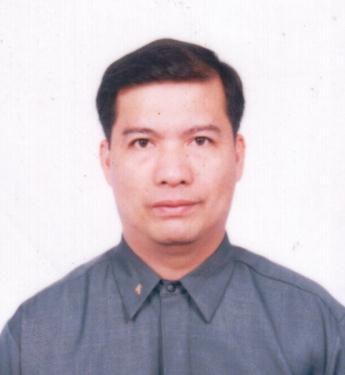United Methodist Delegation Calls for Killing to End in the Philippines
Manila, Philippines—A United Methodist delegation on human rights today called upon Philippine President Gloria Macapagal-Arroyo to take a more aggressive role to halt the killing of clergy, laity, journalists, and human rights workers who work with the poor in the Philippines.
“The killing must stop,” said Bishop John Hopkins, head of the delegation and bishop of the East Ohio Annual (regional) Conference of The United Methodist Church.
Hopkins noted that “extrajudicial” murders had increased in the past year in the country. He said the delegation heard deeply moving first-hand testimony from more than 20 victims and surviving family members from many parts of the nation about the pain and suffering exacted through murders targeting religious and community workers.
Victims said that individuals engaged in human rights education are falsely accused of supporting terrorism or holding membership in political groups advocating violent resistance to the Arroyo administration.
“Our people are not armed,” said Hopkins. “They teach, provide medical care, counsel and educate. We implore the government and military officials to recognize the important work of those who seek to minister with the poor and marginalized and to distinguish their work as vital and important to the country and its people.”
The United Methodist Church has had a presence in the Philippines since the late 19th Century. Its three bishops serve a community of about a million persons connected to nearly 1,700 congregations throughout the nation. The denomination works closely with The United Church of Christ in the Philippines, the largest Protestant denomination in the nation, and the National Council of Churches in the Philippines. Its third denominational partner is Iglesia Evangelica Metodista en Las Islas Filipinas.
Worldwide, The United Methodist Church is present in approximately 125 countries. Its congregations provided more than $5.3 billion in funding for church missions, outreach and administration in 2003. It has more than 11 million members in more than 43,000 congregations.
In an extended visit with Scott Douglas Bellard, Acting Deputy Chief of Mission at the U.S. embassy, the delegation sought the assistance of U.S. officials to press the Philippine government to distinguish between armed terrorists and church and community workers who are conducting their work peacefully.
Similarly, the delegation met with Maria Isabel Gonzales-Tobias, Undersecretary for Religious Affairs of the Philippine government, and with several high-ranking members of the Armed Forces of the Philippines. They pressed for an end to the adverse labeling of human rights activists and religious workers. Military officials denied that lists known as “order of battle” exist at the national level, but conceded that commanders in local assignments might identify “known troublemakers.”
Jim Winkler, general secretary of the General Board of Church and Society, said witnesses and survivors told the delegation of armed military personnel in full body armor appearing in neighborhoods and asking the whereabouts of clergy and other workers. These people then disappear, or are found murdered. Others received notes with death threats slipped under their doors, sent via text messages or through telephone calls.
Several families told of armed men in ski masks and helmets on motorcycles ambushing individuals and killing them. The motorcycles lack license tags or carry counterfeit tags, making them untraceable.
The delegation called for President Arroyo to take the following actions:
Begin an immediate and impartial investigation of all recent extrajudicial executions;
Make a commitment not to impose martial rule or other limitations on civil liberties or human rights;
Revise the government’s military strategy for resolving the insurgency to insure the safety of non-combatants and to avoid indiscriminate destruction of property;
Cease the practice by the government and military of labeling those who work for justice and for the poor as subversive or communist;
Conduct follow-up meetings with the three bishops of the United Methodist Church in the Philippines, including mission partners in other communions to discuss progress on these investigations.
The delegation was invited to the Philippines by United Methodist leaders in the country. Bishop Solito K. Toquero, resident bishop of the Manila Area, said they are the second international church group to visit the country and to express deep concern regarding worsening human rights, especially the killing of activists and church workers. (Press release from UMCOM)


0 Comments:
Post a Comment
<< Home